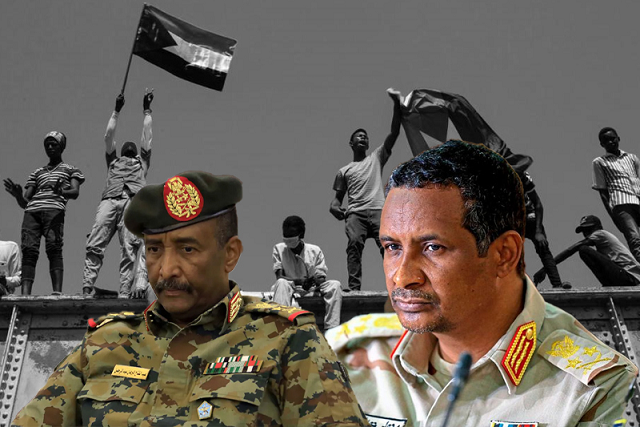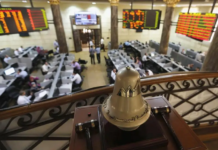April 2023 marks a dark month in the history of Sudan, as devastation continues in the Sudanese capital of Khartoum and the city of Omdurman, despite the extension of the fragile ceasefire between the Sudanese Armed Forces (SAF) and Rapid Support Forces (RSF) paramilitary group.
Khartoum is the Heart and Soul of Sudan’s economy, as it holds the financial Institutions, Wholesale markets, as well as, the hub for statistical and financial electronic data centers, accordingly taking control of Khartoum means taking control of the country.
In less than a month, Only 16% of hospitals are still functioning, according to the World Health Organization. Since 15 April, the fighting has killed at least 512 people, including civilians, and left another 4,200 wounded, and the prospects for these hospitals’ ability to maintain their services is gloomy as the country is running out of medicines needed for operations, While, imports, businesses and general services are currently on-hold, prices of products and services are quadrupling with people eloping the country or moving to safer governorates.
Sudan’s economy depends on Agriculture, a sector that employs more than 80% of Sudanese people and makes up a third of Sudan’s economic sector with nearly 175 million feddan of Arable land abandoned due to internal conflict for years. The country also produces nearly 80% of Gum Globally and is the third largest producer of gold in Africa, over 51 tons of Gold were produced in 2022 with exports revenue exceeding $2000mn in 2022, as per Sudan’s Central Bank. The country has variable mineral wealth that entitle Sudan as a virgin country for its fertile and mineral rich lands.
In 1984, Sudan’s economy started to face challenges in meeting its annual obligations, along the years that followed solutions set in force did not set a sustainable consistent plan to meet these challenges in full, leaving the country in an underdeveloped status, lacking the ability to fully utilize its natural resources. Separation from South Sudan in 2011, led to losing 50% of the country’s GDP & 95% of its exports as per World Bank figures, a matter that fractured the country’s budget causing a mega wave of inflation, pushing 3rd of the country’s population (Avg. 15mn) into hunger, surviving on International Aid. Since the people’s revolution in 2018, solutions and discussions to set an economic plan on-track were in place with nearly $4.4bn in agreement for setting the country’s economy back on track, pending reaching a civil administration within the country, Yet, due to greed and lust for power, reaching an agreement ended up with the current fierce and aggressive civil war that erupted.
All countries have referred to the situation as an internal affair within Sudan, standing and watching the millions of dollars wasted in infrastructure, the increased number of corpses in the streets and the fire that is eating up the country, and with the recent prison breaks, it is forecasted that the armed conflict may reproduce a new terrorism hub, a wave of mass immigration and further ignite the war into not only destroying the country’s infrastructure, its people and the Region, but expanding to infect the World as a whole at a fast and drastic pace.












